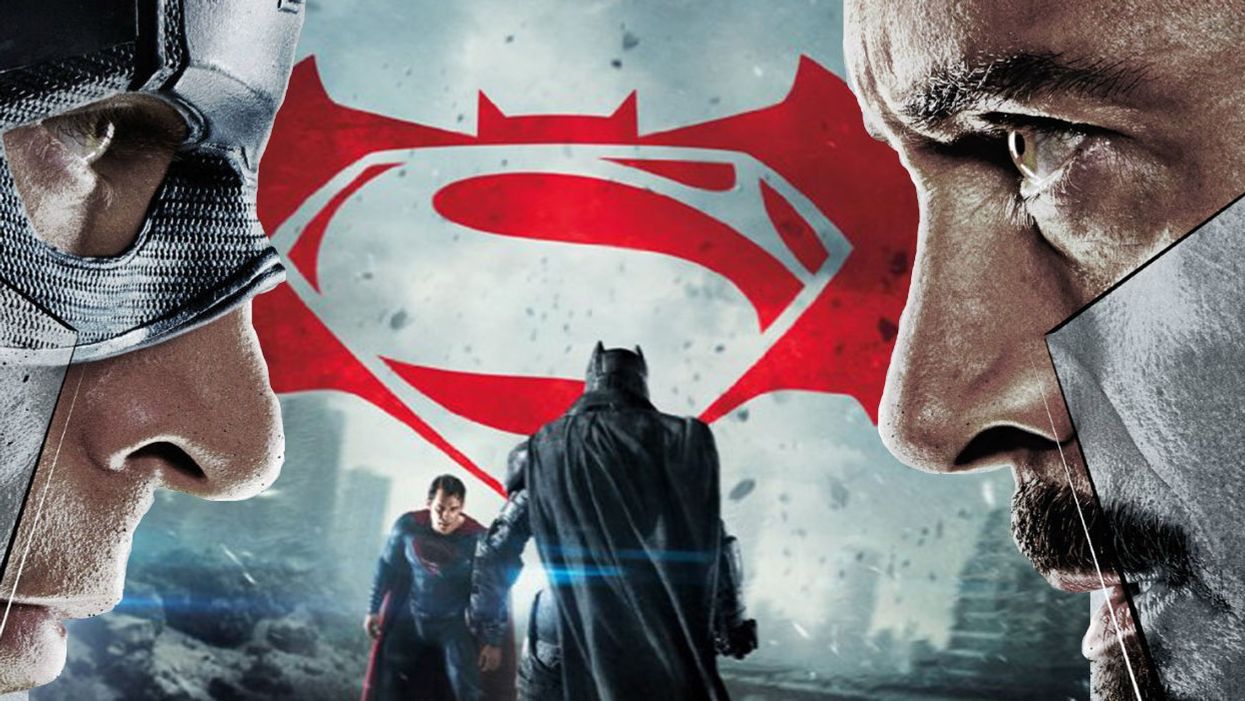Watch: POW! Fantastic Facts About Marvel and DC's Box Office Takeover
There are enough characters in the DC and Marvel universes to make movies for the next 3,400 years.

For 50 years, from roughly 1910 to 1960, the most popular genre of film at the box office, by far, was the western. In fact, one of the most influential films in history, Edwin S. Porter's 1903 The Great Train Robbery, is a bonafide western. But today, the spurs have been exchanged for masks; we live in the age of the on-screen superhero. This video from Wired takes a look at the history of the genre and its astonishing domination of the global box office.
While superhero comic books have been ubiquitous since the end of the 1930s, the masked do-gooders didn't start their cinematic takeover until 1978, when DC and Warner Bros. teamed up for Superman: The Movie. At the time, that was the most expensive movie ever made, at $55 million. Adjusted for inflation, that's almost $200 million dollars. A huge, sequel-spawning hit, it begged for a riposte from Marvel, which arrived a few years later in surprising the form of...Howard the Duck. The George Lucas produced flop sank Marvel's fortunes for several years (though the movie became a cult hit and there's been talk of a reboot.)
1989 saw Tim Burton's Batman, but Marvel went into bankruptcy until the successes of the Blade, X-Men, and Spiderman franchises saw it come roaring back, to the point where Marvel now has its own studio and a universe of characters that comprise the most successful franchise in movie history, beating out Harry Potter, James Bond, and even Star Wars (though, to be fair, Marvel's universe is significantly bigger than the others.)
"We were around when the Western died and there will be a time when the superhero movie goes the way of the Western."
-Steven Spielberg
Though 2015 saw 27.6% of all consumer dollars spent on movies go to superhero films, Steven Spielberg, for one, is not bullish on the genre in the long-term, telling the Associated Press in 2015, "We were around when the western died...there will come a day when the mythological stories are supplanted by some other genre that possibly some young filmmaker is just thinking about discovering for all of us." Spielberg is likely correct: one day, the current enthusiasm for superhero movies will probably fade, just like the sun will eventually burn out. For its part, the western was irreparably changed by its evolution into the "anti-western," even though that turn produced classics like Sergio Leone's 1968 masterpiece,The Good, the Bad, and the Ugly.
In 2005, moviegoers were shocked by Christopher Nolan's take on Gotham City, an altogether grimmer place than any before; some politicians thought The Dark Knight was an ode to the war on terror, and its tone has already had an influence on other filmmakers. But, as Spielberg predicts, one day, the heroes will hang up their masks and return to normal society, and it is young filmmakers who will ultimately determine the new myths of tomorrow. In the meantime, though, there's still enough material in the DC/Marvel warehouse to keep us in tights for the next 3,400 years.
Source: Wired











